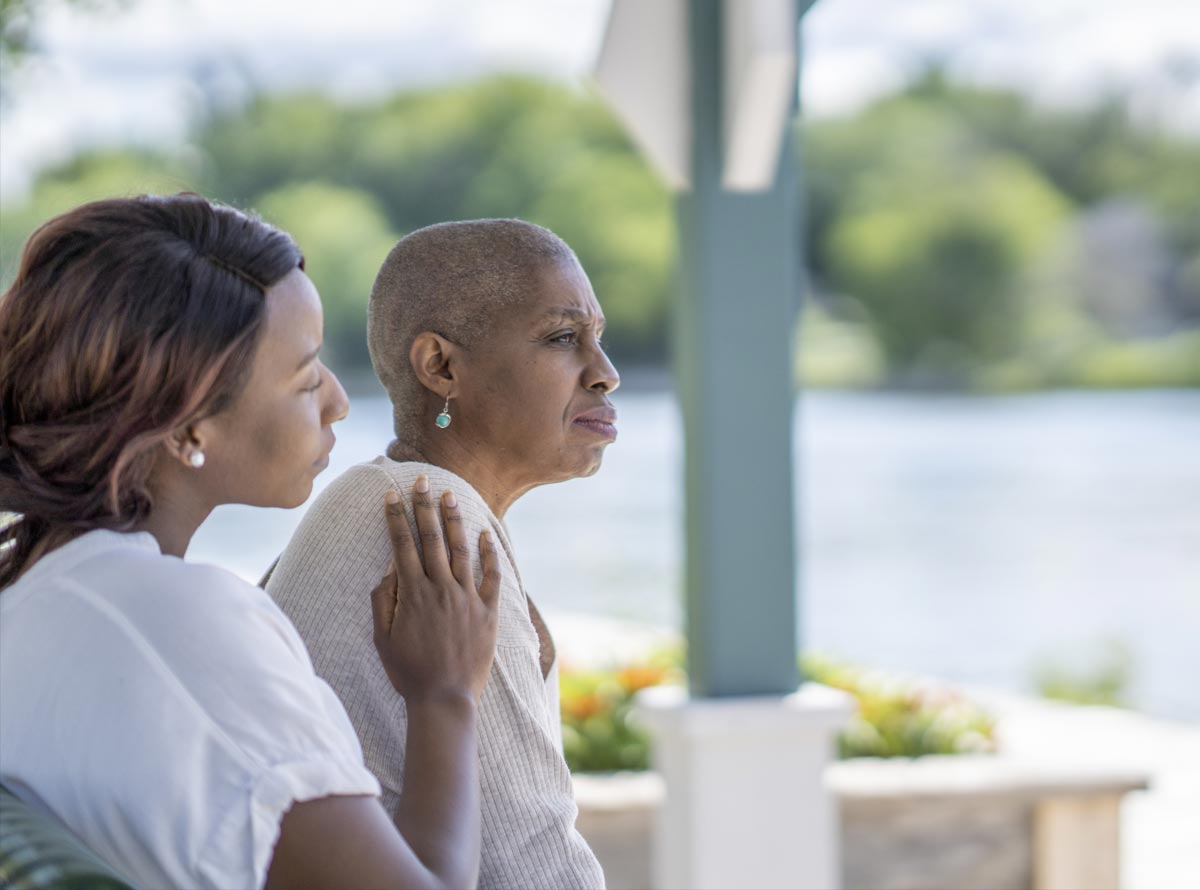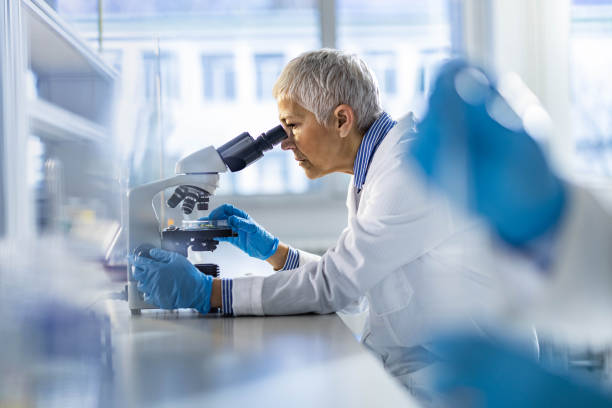All cancers begin with pathology testing, which forms the foundation of diagnosis and treatment planning. Pathology helps determine key features of the cancer, including:
Pathology testing answers the essential question: “What is this cancer?”
Precision medicine testing builds on this foundation by helping answer the next question:
“What is driving this cancer, and how can treatment be tailored accordingly?”
Rather than relying solely on where a cancer began or how it appears under the microscope, precision medicine incorporates information from a tumor’s molecular profile to help guide treatment decisions.
Just as every person has a unique fingerprint, cancer cells can carry their own distinct molecular “signatures.” These signatures – called molecular biomarkers – provide important insight into how a cancer behaves. This approach recognizes that cancers with similar appearances can behave very differently based on their underlying biology.
Precision medicine supports a more personalized treatment plan based on the unique molecular “signatures” of your cancer – helping identify targeted therapies, immunotherapy options, and potential clinical trials that may be appropriate for your specific tumor type.
Precision medicine cancer biomarker testing is recognized as a standard of care at many National Cancer Institute (NCI)–designated cancer centers. It is transforming cancer care by helping patients and clinicians better understand what is driving an individual’s cancer and how treatment can be tailored accordingly.
Importantly, precision medicine testing does not replace traditional treatments such as surgery, chemotherapy, or radiation therapy. Instead, it complements these approaches by helping guide more informed, individualized treatment decisions.
In today’s rapidly evolving cancer care landscape, it is difficult for even oncologists to stay on top of the latest advancements in testing and treatment options. Patients play an essential role in their care. Patient advocacy is a vital component of the cancer journey and can help shape life-saving care decisions and outcomes.
While precision medicine cancer biomarker testing are standard practice at many major cancer centers, these options may not always be known or discussed in more rural or smaller community oncology settings. Asking questions and discussing testing options with your care team can help ensure that appropriate testing is considered.
With clear communication early in the process – ideally before biopsies are performed – and by confirming how your tissue samples are handled and tracked, patients and providers can help preserve options for molecular testing when appropriate.
Understanding your diagnosis, asking questions, and participating actively in your care can be life-saving. No one is more invested in your survivorship, quality of life, and long-term health than you.
Through MADP Circle of Hope®, we provide trusted educational resources to help you understand comprehensive cancer care options, including cancer biomarker testing, and how to locate laboratories nationwide that offer this specialized testing – supporting informed decisions at a critical time.
A cancer diagnosis can feel overwhelming. MADP is here to provide clear, patient-centered resources to help you understand your options and engage in meaningful conversations with your oncology care team.
If you would like additional information or guidance, please contact us at info@microbiomeDP.org. Our team is committed to helping you navigate the complexities of cancer care by connecting you with trusted supportive resources when you need it most.

When battling cancer, every minute matters.
MADP Circle of Hope provides supportive resources to help patients navigate the complex clinical world of cancer.
MADP provides a hopeful approach to understanding cancer, accessing comprehensive care, tumor biomarker testing, and targeted treatments.
MADP Circle of Hope supports individuals recently diagnosed, undergoing treatment, and cancer survivors.
Together Fighting Cancer – Every Step of the Way.
The development of cancer is often a gradual process. The progression from normal cells to precancerous changes and, eventually, to cancer can take many years and involves multiple genetic and epigenetic changes.
Inflammation is one of the recognized hallmarks of cancer and plays an important role in the progression of precancerous changes. Persistent inflammation can alter the tissue environment in ways that support tumor growth and is a common underlying factor in several types of cancer.
At MADP, we describe this complex, pro-inflammatory environment as the “inflammatory cancer cloud.” Chronic inflammation can damage cells and tissues, contribute to DNA damage, promote abnormal cell growth, and interfere with the body’s natural ability to eliminate potentially cancerous cells – ultimately increasing cancer risk.
More than 70% of the immune system is associated with the gut, where trillions of microorganisms interact continuously with immune cells. Together, they help regulate inflammation and immune responses, functioning like a communication network that supports the body’s defenses.
The gut microbiome can act as either a protective ally or a contributing factor to disease. When the microbiome is disrupted – a state known as dysbiosis – intestinal permeability may increase (sometimes referred to as “leaky gut”), allowing inflammatory substances to enter the bloodstream and contribute to systemic inflammation.
In contrast, a healthy and diverse microbiome helps regulate inflammation and support immune function. Beneficial gut bacteria produce compounds such as short-chain fatty acids (SCFAs), which have anti-inflammatory properties and help maintain the integrity of the intestinal barrier.
Emerging research suggests that a healthy gut microbiome – supported by nutrient-rich dietary patterns and healthy lifestyle factors – may play a role in:
While clinical research is ongoing, these findings highlight the microbiome as an important area of study in cancer, treatment response, and survivorship. MADP is committed to advancing public awareness and education as this emerging field of precision medicine continues to evolve.
“There is a direct correlation between one’s diet, the composition of the gut microbiome, and the absorption of cancer immunotherapy. The increased diversity of the gut microbiota has a profound impact on survival outcomes of cancer patients than those with lower diversity.”
~ Jonathan Peled, MD, PhD, Medical Oncologist
Memorial Sloan Kettering (MSK) Cancer Center


MADP Precision Public Health
Expanding Access to Precision Medicine for All Cancer Patients
Together, Closing the Gap in Cancer Care
~ Rodney Dietert, Ph.D.,
Cornell University
~ Jonathan Peled, M.D., Ph.D.,
Memorial Sloan Kettering Cancer Center
~ Jennifer Wargo, M.D.,
MD Anderson Cancer Center